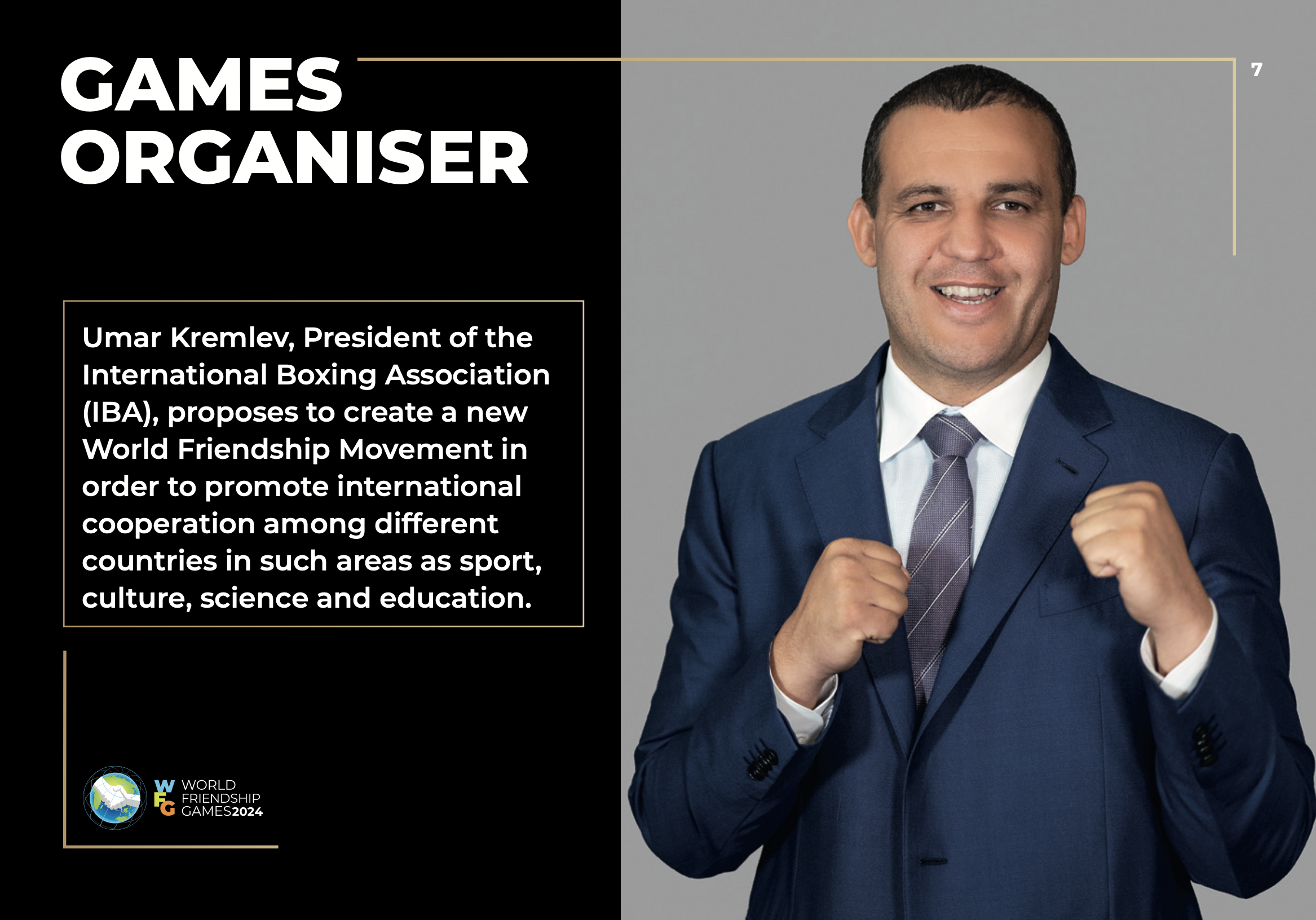
The No. 1 complaint athletes have about the Olympic movement is that they can’t make money.
Meet the International Olympic Committee-disapproved Friendship Games, coming this September in Russia: 36 sports, 21 venues, 17 in Moscow, four in Ekaterinburg (including track and field Sept. 18-22).
Total prize money, across all sports: $100 million. Winners get $40,000. Second place, $25,000. Third, $17,000. No ‘Olympic village.’ Instead, you’ll be welcome in three- or four-star hotels.
Push, meet shove – brought to the world in some significant measure by Umar Kremlev, arguably one of the most provocative and interesting figures in world sport in 2024.
These details and more about the World Friendship Games 2024 and the creation of the ‘International Friendship Association’ have been widely circulating in recent days – confirmation of what some see as a ploy by an isolated Russia or, more likely, an existential threat to the IOC, now in its third century, and what the IOC stands for.
Since 1896, the Olympic world has operated on the notion of an aspirational ideal – the promotion of world peace by bringing the athletes of the world together in the hope that one-to-one exchange can reveal that we are all, in the end, more alike than different.
That’s not what the IFA – to be based in Abu Dhabi – is about.
“The World Friendship Games is an international commercial multisport tournament held under the auspices of the International Friendship Association,” the details proclaim.
“The purpose of the Games is to create an effective platform for high-performance sports, to ensure the non-discriminatory access of athletes from all countries and sports organizations to international sports activities, and to develop new formats for international sporting cooperation.
“The World Friendship Games honors the human right to participate in sport without political interference. The only criterion for participation in the Games is the athletes’ sporting achievements, and they will be invited individually based on the recommendations of national sports federations and international athletic ratings.”
Quarrel, if you will, with all of this, especially the part about “without political interference.”
The workaround is “invited individually.” And the part about getting paid—that’s very real. If you’re on a team, getting paid—that’s real, too.